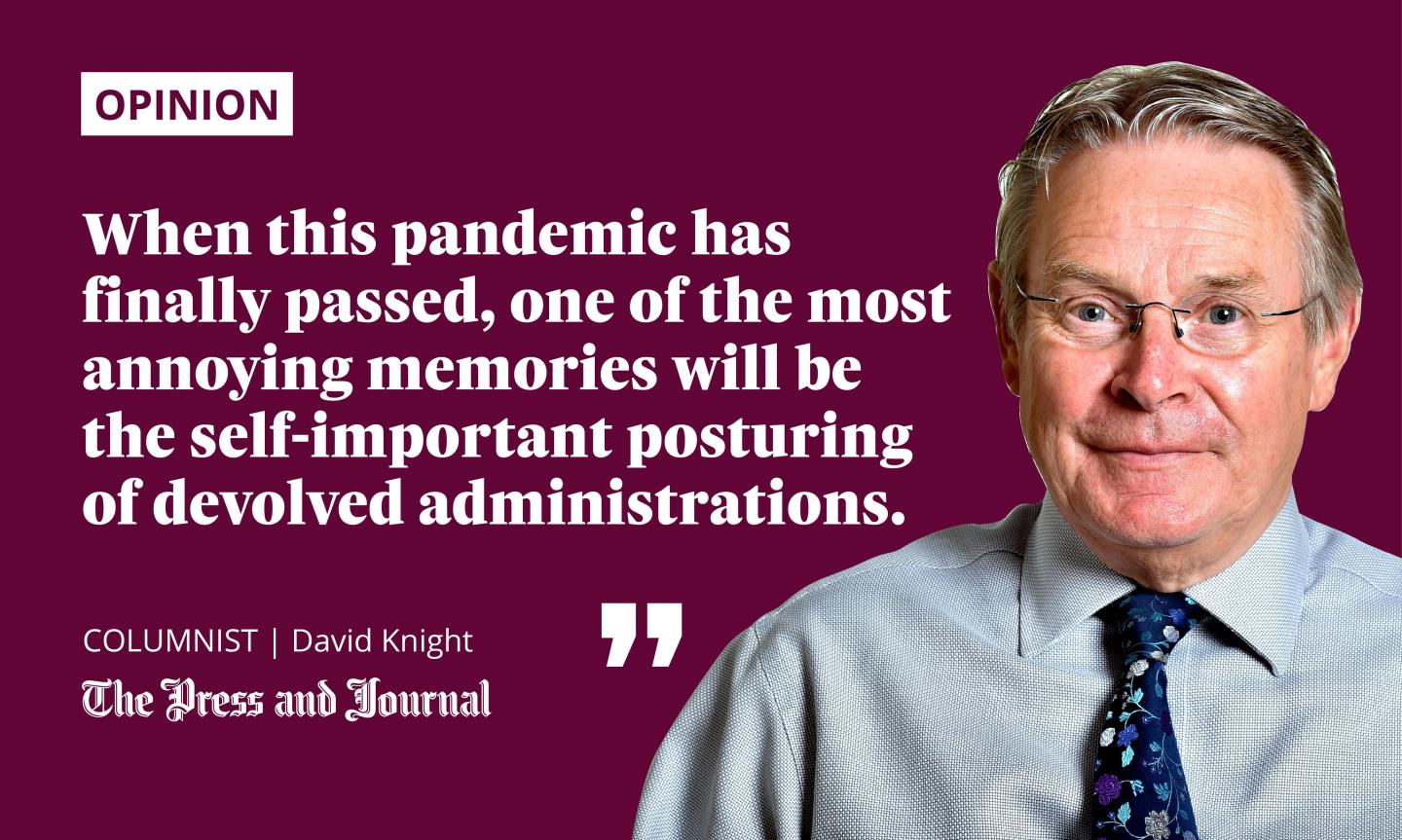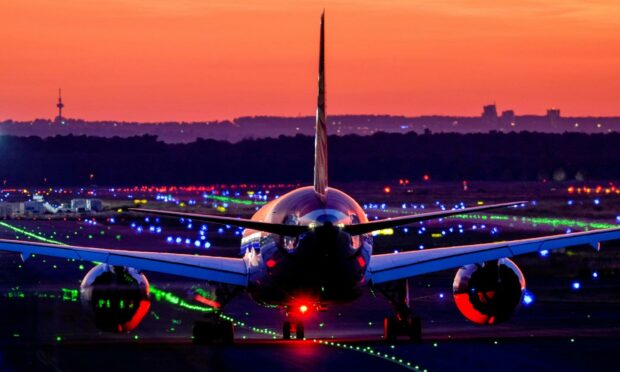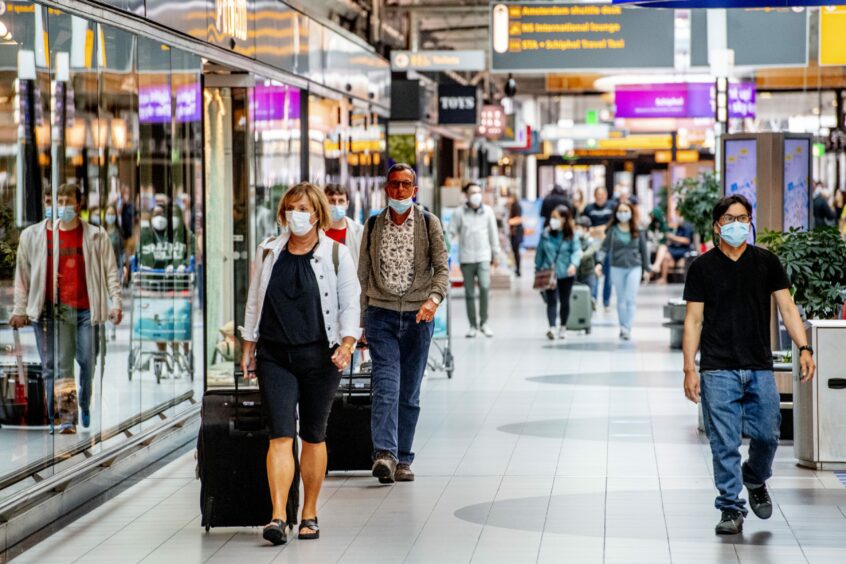We shuffled to flight check-in at 4am, but our dreams seemed to be evaporating as we attempted to cross the last barrier to pandemic freedom – a holiday abroad.
A cheery check-in person asked: “And you’ve both had a Covid test, yes?”
It was like a dagger to our hearts; after the colour drained from our cheeks, we asked: “What test?”
Don’t say our 3,000-mile journey to Lanzarote in the Canaries via Amsterdam had ground to a halt at a dead end in Dyce after just six miles. I thought I’d ticked every box about Covid entry requirements for the Netherlands and Spain.

After several tense seconds, she noticed we were only transiting through Schiphol airport instead of staying in Holland, so didn’t need a test certificate after all.
We only required proof of double vaccination to secure our coveted boarding passes; these were now so desperately desirable I was convinced the tickets would be printed in gold leaf.
That’s all very well, but what about our separate quarantine exemption certificate for Holland? Another potential banana skin lay before us.
Bureacratic maze at airport
But, like a man with a royal flush at a Monaco poker table, I produced the aforementioned document with a flourish, so all those around me could marvel at my expertise.
Some of these poor souls had turned up empty-handed; I half-thought they would be marched out, loaded onto a lorry and sent off to some mysterious camp, surrounded by barbed wire. But they were furnished with photocopies of Dutch quarantine declaration forms and friendly advice on how to fill them in.
It was far from a stern border guard approach, I feared. Later we observed the same benevolent atmosphere in Netherlands and Spain to guide those of a nervous or confused disposition through this bureaucratic maze.
It was more than 18 months since we had flown anywhere, and I couldn’t help but notice my wife was back into the swing of things at Schiphol.
In no time at all she bagged expensive perfume, cut-price Moët & Chandon champagne and a giant bag of Haribo sweets in airport shops. What else could one possibly need for a foreign holiday?
Governments cling to power
“Show us your papers” sounds like a send-up of wartime spy films, but it’s a reminder of unprecedented state control in modern times. Governments like to cling to powers rather than let go.
Our confusing array of UK governments are comfortable and complacent with bossing us around or meddling in layers of travel traffic-light muddle while hiding under a camouflage of “the emergency”.
“Can you imagine the Russians or Taliban invading and four different political leaders standing on podiums each day outlining their separate strategies for fighting the enemy? Of course not; so why was it OK for the biggest crisis since world war?
When this pandemic has finally passed, one of the most annoying memories will be the self-important posturing of devolved administrations, often appearing to be out of step as far as UK unison goes.
It has often been said that the crisis was on par with the Second World War, except we had actually been invaded by a brutal enemy this time.
Can you imagine the Russians or Taliban invading and four different political leaders standing on podiums each day outlining their separate strategies for fighting the enemy? Of course not; so why was it OK for the biggest crisis since world war?
Surely another emergency measure could have allowed the UK Government to fully lead as it always does on foreign threats and defence, and as it did with the two biggest Covid life savers – the vaccine and furlough roll outs?
Disconnect between Westminster and Holyrood
In Scotland’s case, it is sometimes hard to distinguish between what is genuinely in the public interest and a relentless attempt to paint a picture of an independent “government-in-waiting”.
We were recently left with another disconnect between Westminster and Edinburgh over PCR tests for returning holidaymakers from overseas after recent traffic light changes in England dropped them.
No wonder Edinburgh airport claimed Scotland was the most restrictive country in Europe after Scottish ministers continued to enforce PCR – like compulsory mass surveillance – to the horror of the country’s disintegrating travel industry.
Ms Sturgeon has now caved in and aligned with England after causing an outcry.
People in white coats and visors checked our Spanish health forms at Lanzarote, but it was a faster process than collecting our luggage.
We suddenly discovered something even bigger than Covid was looming here – a volcano had erupted at another Canary island, La Palma. The news coverage was frenzied and heartbreaking, but a solitary Brit caught my attention on a local online holiday forum.
“I am flying out to Lanzarote in a couple of days,” he said. “Has the volcano affected the weather?”
It’s great to be British and on holiday.
David Knight is the long-serving former deputy editor of The Press and Journal

